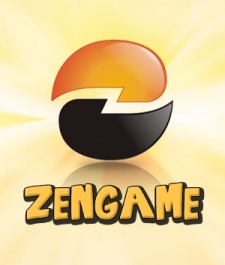Set up by staff from Chinese game companies such as Shanda and The9, Shanghai-based Zen Marketing & Publishing has plenty of experience of its local market.
That's why it's looking to work with international mobile developers who want to get their games released in China.
But as Zen's Henry Zeng explains, the company is also outward looking.
It works with Chinese developers to publish their games internationally, as well as releasing its own titles under the label ZenGame.
Pocket Gamer: Can you give us some background about Zen Marketing/ZenGame and the types of services you offer?
Henry Zeng: We are a mobile game developer and publisher from Shanghai, China. What differentiates us from other Chinese mobile companies is our global vision. We commit ourselves to promoting good Chinese games to the world, and introducing outstanding foreign games to China.
Our purpose is to spread excellent games without national boundaries, and allow people worldwide to enjoy the unique charm of mobile games. 'Globalisation and universal platforms' are what we always adhere to.
Why do you think the Chinese Android market is important for western game developers? Is the iOS market as important?
It's well known that the mobile internet has brought global market changes. It's obvious that the large user base and consumption of the Chinese mobile market is a substantial attraction to western developers, and the relatively less expensive Android devices have become the preferred choices of Chinese consumers.
We estimate there will be more than 150 million new Android devices activated on the China's mainland in 2013. Isn't it exciting?
Although iOS devices make up a small proportion of mobile devices in China, their users still have the highest income and consumption capacity. Furthermore, the absolute number of iOS users is still notable, therefore the iOS market is important for us as well.
What type of games do you think work best for the Chinese audience, and how do you advise the western companies you work with in terms of localising their games?
Angry Birds, Fruit Ninja and many other games have achieved remarkable success in China. We found games welcomed worldwide can also win the favour of Chinese players. We believe casual games with simple and relaxing game experiences are more likely to succeed.
We have always promoted our concept to our partners that we need to 'concentrate on globalisation first, then localisation'.
It means a game needs to be repeatedly optimised for gameplay, usability and guidance. Even when the players don't understand the context, they can still perceive the core gameplay through properly designed game elements. Only on this basis can localisation make the game more fun.
But localisation is not simple translation of context. It's a modification of copywriting, user interface and game expression, following the habit of Chinese users. From our past experience, a well-localised game can increase the revenue by up to 60 percent.
As well as helping western developers release games in China, you also publish globally. What sort of companies are you working with on that level?
As mentioned above, we would very much like to help foreign partners to reach Chinese market, and bring good Chinese games overseas. We love this kind of exchange.
Many large Chinese game companies have been successful in terms of international releases, but there are also many small Chinese developers who have created stunning games. Their games should attract the attentions of the global game market, but they are hindered by language, culture, finance and other factors.
We want to help them distribute their games overseas. We are willing to grow with the small and medium Chinese developers.
Do you have any plans to develop your own mobile games?
Yes. We'll be launching a new game we've developed in the near future.
It will feature a 'pandaman' as we think pandas are figures accepted by both east and west. We plan to launch the game on Android first, then release it on the App Store. We hope our players will like it.
You mention your user acquisition program. Can you explain how that works?
With increasing competition, user acquisition costs have risen dramatically. In addition to optimising our current publishing channels, we hope to acquire users from different sources. We want to connect games with music, travel and other lifestyle apps, and hope to build diversified joint promotion plans.
Although there are some minor problems in user conversion after our small-scale tests, the results are still astonishing. We believe this plan can generate the growth of both user base and game brand.
Can you explain the process behind your release of Dodo Fly on Google Play?
Dodo Fly is an excellent casual game that achieved quite good rankings on Apple's App Store. When ported to Android, we scheduled a series of promotion activities.
Before the official launch on Google Play, we provided optimisation in the game, and also in terms of the icon, video trailer, screenshots etc. In addition to advertising, PR and other promotions, we carried out community contests and social media marketing.
Moreover, we are continuously monitoring the game data after launch in order to further improve the user experience. The result proves that we are on the right track. We are now preparing the promotion materials for a major game update.
What's next for you in 2013?
2013 is a year full of hope. We hope we can do even more in terms of promoting Sino-western game intercommunication. We also see a lot of new opportunities in areas such as Southeast Asia.
Besides, we expect better results with our own games, as we have multiple titles in development.
Thanks to Henry for his time.
You can find out more about Zen via its website.
China spotlight: Zen Marketing on the opportunities of Sino-Western game exchanges
Localisation is a two-way street




















